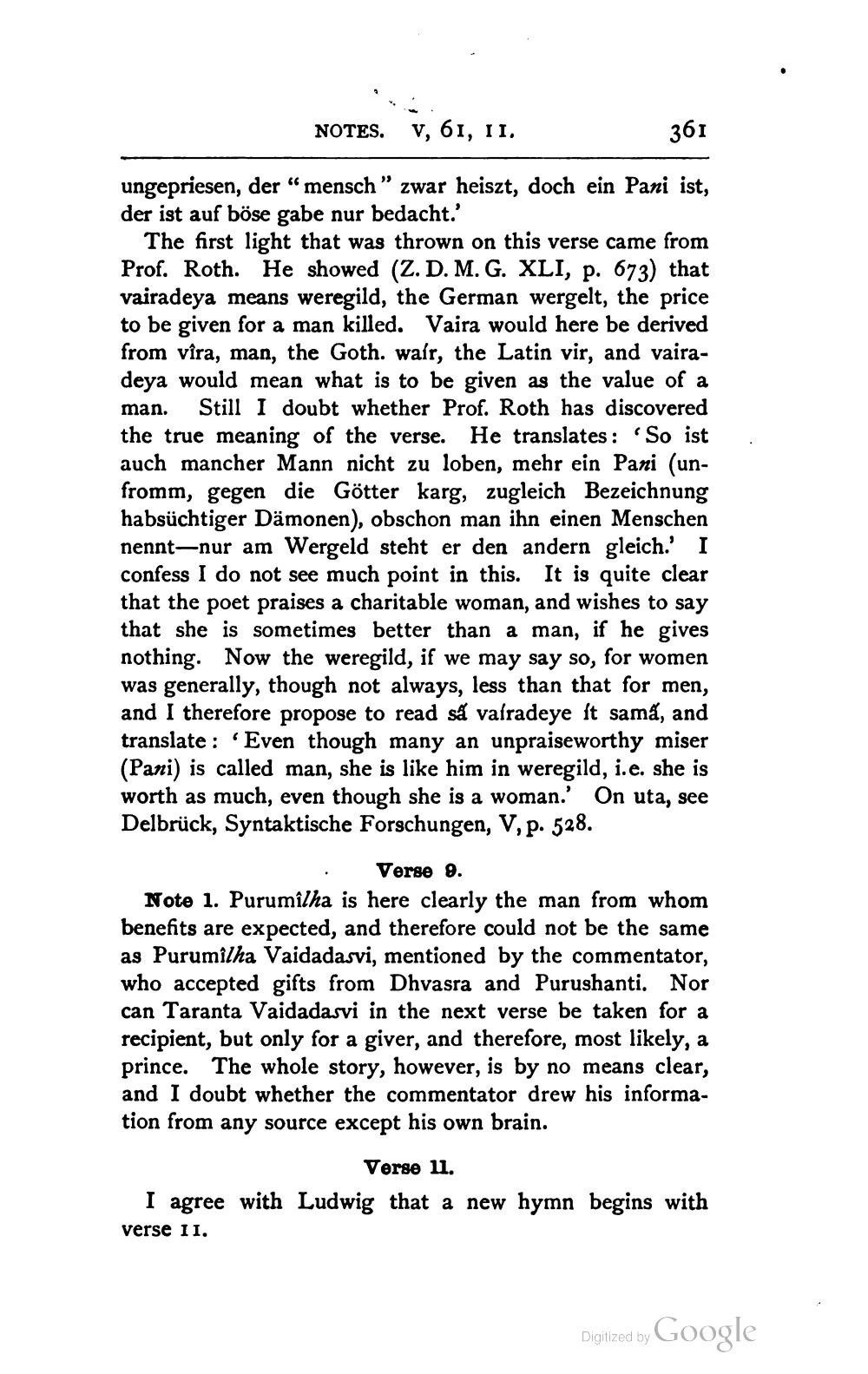________________
NOTES. V, 61, 11.
361
ungepriesen, der “mensch" zwar heiszt, doch ein Pani ist, der ist auf böse gabe nur bedacht.'
The first light that was thrown on this verse came from Prof. Roth. He showed (Z. D. M.G. XLI, p. 673) that vairadeya means weregild, the German wergelt, the price to be given for a man killed. Vaira would here be derived from vîra, man, the Goth. wair, the Latin vir, and vairadeya would mean what is to be given as the value of a man. Still I doubt whether Prof. Roth has discovered the true meaning of the verse. He translates: "So ist auch mancher Mann nicht zu loben, mehr ein Pani (unfromm, gegen die Götter karg, zugleich Bezeichnung habsüchtiger Dämonen), obschon man ihn einen Menschen nennt-nur am Wergeld steht er den andern gleich.' I confess I do not see much point in this. It is quite clear that the poet praises a charitable woman, and wishes to say that she is sometimes better than a man, if he gives nothing. Now the weregild, if we may say so, for women was generally, though not always, less than that for men, and I therefore propose to read sá vairadeye st sama, and translate : ‘Even though many an unpraiseworthy miser (Pani) is called man, she is like him in weregild, i.e. she is worth as much, even though she is a woman.' On uta, see Delbrück, Syntaktische Forschungen, V, p. 528.
• Verse 9. Note 1. Purumilha is here clearly the man from whom benefits are expected, and therefore could not be the same as Purumilha Vaidadasvi, mentioned by the commentator, who accepted gifts from Dhvasra and Purushanti. Nor can Taranta Vaidadasvi in the next verse be taken for a recipient, but only for a giver, and therefore, most likely, a prince. The whole story, however, is by no means clear, and I doubt whether the commentator drew his information from any source except his own brain.
Verse u. I agree with Ludwig that a new hymn begins with verse II.
Digitized by
Digitized by Google




